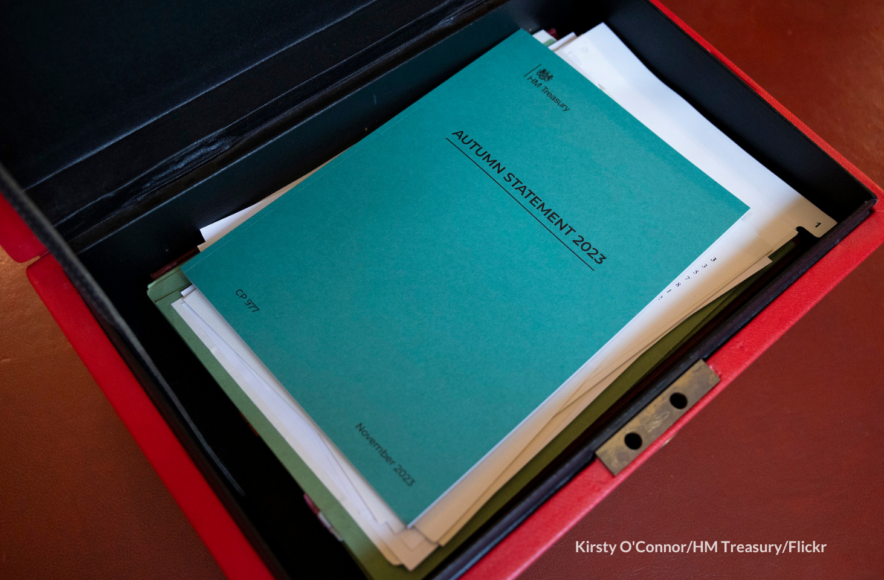Autumn Statement 2023: ‘What I would have rather seen’ by Ben

Jeremy Hunt, Chancellor of the Exchequer, announced in his Autumn Budget Statement that Work Capability Assessments will be changed. This will mean more claimants will be placed in work-related activity groups, and placed on a mandatory work placement if they haven’t found a job after 18 months.
And, if they don’t find a job within the next 6 months, their benefit claim will be ended. They will lose entitlement to housing benefits, free NHS dental treatment, free prescriptions in England, and legal aid so they would even struggle to challenge the decision.
I worry this could make people even more sick, possibly end up homeless, push them towards the criminal justice system, or even worse, death. All this does is leave the voluntary sector and hospitals to pick up the shattered pieces. This feels cruel and counter-productive.
I’m not sure how making the already sick and poor even sicker and poorer helps them get closer to work?
Many disabled people are not able to work for more than a few hours a week and there must be a strong correlation between the increasing number of claimants and NHS treatment waiting lists, which exceed 7 million and rising – greater than 10% of the UK population.
Disability benefits
Instead, I would like to see a compassionate government bring back Severe Disablement Allowance, a benefit that the then Labour government abolished for new claimants in 2001. Severe Disablement Allowance would protect those with long-term health conditions and lifelong disabilities by recognising their conditions and not requiring them to look for work for the long term.
This action alone would protect the most vulnerable from being dragged into the ‘cohort of cruelty’.
Secondly, those with lifelong disabilities who receive Personal Independence Payment (PIP), should be given indefinite or lifetime awards (as was the case with Disability Living Allowance) instead of being put through the trauma of having to be reviewed and assessed every few years.
These disabilities/conditions are not going to be magically cured, so some common sense would save people a lot of stress and also save the Department for Work and Pensions money in not having to administer excessive claims, reviews, assessments and tie up the courts with appeal tribunals. The Scottish Government has adopted this common-sense policy and I believe that a Westminster government, if actually elected using a fair voting system, such as proportional representation, would do the same.
A Universal Basic Income
I think that the long-term fair solution to helping people into work is introducing a ‘Universal Basic Income’. This would guarantee every adult living in the UK a basic income of around £100 per week.
Those who are better off would also receive this but would incur higher taxation. The benefit would still include a means-tested disability component for sick and disabled people and PIP would continue as a non-means-tested benefit for sick and disabled people. This would mean that anybody who felt able to would be able to undertake a small amount of work without it having any consequence or sanction to their benefit.
If you’re worried about what the Autumn Statement means for you, I would encourage you to find out who your MP is, see if you can attend a surgery they hold, and express your concerns.
- Ben is a media contributor for United Response.
Related: United Response’s full reaction to the Autumn Statement 2023.